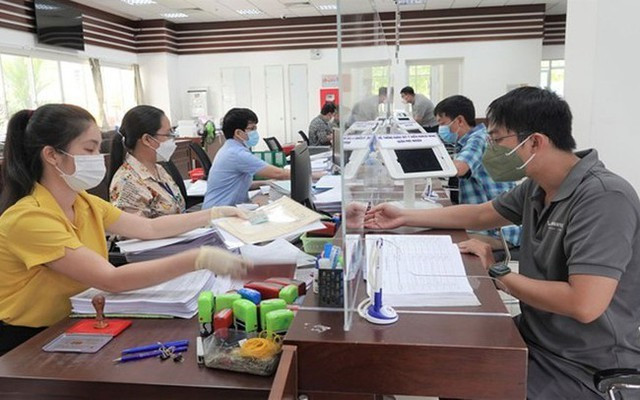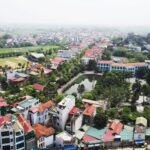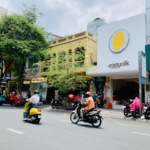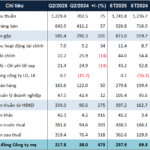Multi-Provincial Interest Issue
The Ministry of Home Affairs has issued a document in response to the People’s Committee of Dak Lak province’s request for clarification on several issues related to the organization, personnel, regime, and policies during the implementation of the two-level local government model.
This directive from the Ministry of Home Affairs not only provides clarification for Dak Lak province but also addresses concerns raised by many other provinces and cities during the operation of this new model.
One of the key points addressed is whether leaders and civil servants in units with remaining staffing quotas can be considered for early retirement or resignation to enjoy the regime prescribed in Decree 178.
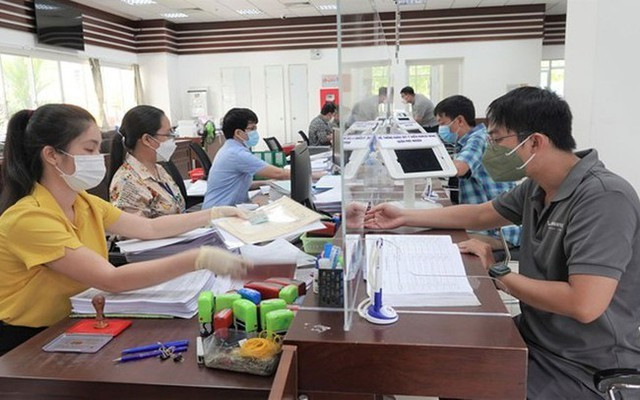
The Ministry of Home Affairs has issued guidance on whether civil servants in units with remaining staffing quotas can retire under Decree 178. Illustrative image.
According to the Ministry of Home Affairs, leaders and managers who are civil servants or public employees working in agencies and units directly affected by the organizational structure rearrangement and whose total number of leaders and managers at the same level exceeds the prescribed limit may be considered for regime and policy arrangements under Decree 178 (as amended and supplemented in Decree 67).
Additionally, the Ministry of Home Affairs clarified that, according to point c, clause 5 of Document No. 4177 dated June 23, the determination of the number of staffing quotas lower than the prescribed framework for considering and resolving regimes and policies only applies to the communal level after the rearrangement and consolidation. This ensures sufficient resources for the new communal-level authorities to perform their assigned tasks effectively.
For units that have not utilized their full staffing quotas, localities need to comply with the guidance provided in Document No. 4177 dated June 23 and Document No. 09 dated May 30 of the Government Steering Committee.
The Ministry of Home Affairs also provided guidance on whether cumulative working time can be calculated for allowance entitlement for non-specialist staff at the communal level.
On this issue, the Ministry of Home Affairs stated that, according to the provisions of Clause 4 and Clause 5, Article 5 of Decree No. 154, the working time to calculate allowances for non-specialist staff at the communal level is the total working time in the position of non-specialist staff at the communal level and the working time with compulsory social insurance contributions in other positions within the agencies of the Party, State, Vietnam Fatherland Front, socio-political organizations from central to communal levels, and armed forces, but have not yet received redundancy allowance or social insurance benefits in a lump sum or have not yet received benefits. for military service discharge.
Therefore, for the above case, which falls under the provisions of Decree No. 154, the Ministry of Home Affairs requested the Department of Home Affairs of Dak Lak province to base on the above regulations to determine the working time to calculate allowances for non-specialist staff at the communal level as prescribed in Clause 1, Article 9 of Decree No. 154.
Proposal to Collect Civil Servant Quota Statistics before August 4
The Ministry of Home Affairs has sent a document to ministries, localities, and other relevant organizations, requesting a review and report on the statistics of administrative organizations, public non-business units, civil servant quotas, and public employees after the rearrangement of the organizational structure and the implementation of the two-level local government model.
Regarding the organizational structure, the Ministry of Home Affairs requested to collect statistics on the number of administrative and public non-business units at each management level as of July 31, 2025.
For specialized rooms under the People’s Committees at the communal level, the Ministry of Home Affairs requested to specify the number of organizations and the names of these specialized rooms. Reports should also include cases where communal-level administrative units do not organize specialized rooms as prescribed in Decree No. 150/2025 of the Government.
In terms of staffing quotas, the Ministry of Home Affairs requested to collect statistics on the number of civil servant quotas and the number of employees in public non-business units managed by ministries, sectors, and localities present as of July 31, 2025, and compare them (increase or decrease) with the number of civil servant quotas and the number of employees assigned by competent authorities in 2022 and additionally assigned until 2025 (if any).
Due to time constraints, the Ministry of Home Affairs requested that ministries, sectors, and localities promptly implement this directive and submit official reports to the Ministry of Home Affairs no later than August 4, 2025. This will ensure timely consolidation and serve the evaluation process, as well as the formulation of proposals to be submitted to competent authorities for consideration and decision-making.
The City of Ho Chi Minh: A New Era of Governance
“With the new two-tier local government structure in place, Ho Chi Minh City has efficiently organized and streamlined its operations. Within a month, the city has successfully appointed and assigned a competent team of officials and civil servants to their respective positions across various departments and units. This marks a significant step forward in the city’s administrative reform, with the establishment of the Public Administration Service Centers at the commune level, aiming to enhance service delivery and improve public accessibility.”
The Vice-Premier: Streamlining the Apparatus Impacts Approximately 100,000 Officials
Vice Prime Minister Nguyen Hoa Binh has revealed that around 100,000 officials and civil servants will be impacted by the upcoming reorganization and streamlining of government agencies. This move is part of a broader effort to enhance efficiency and effectiveness in Vietnam’s public sector.


























